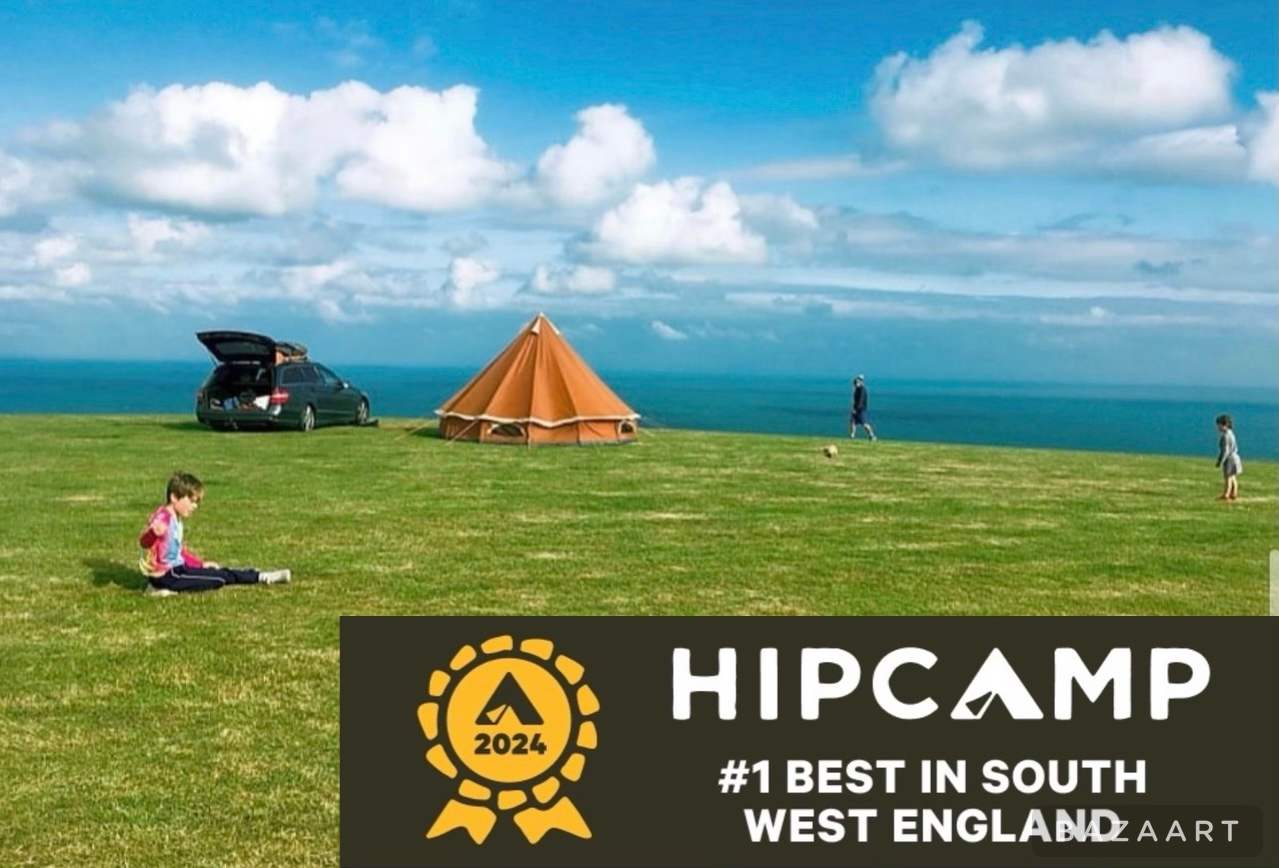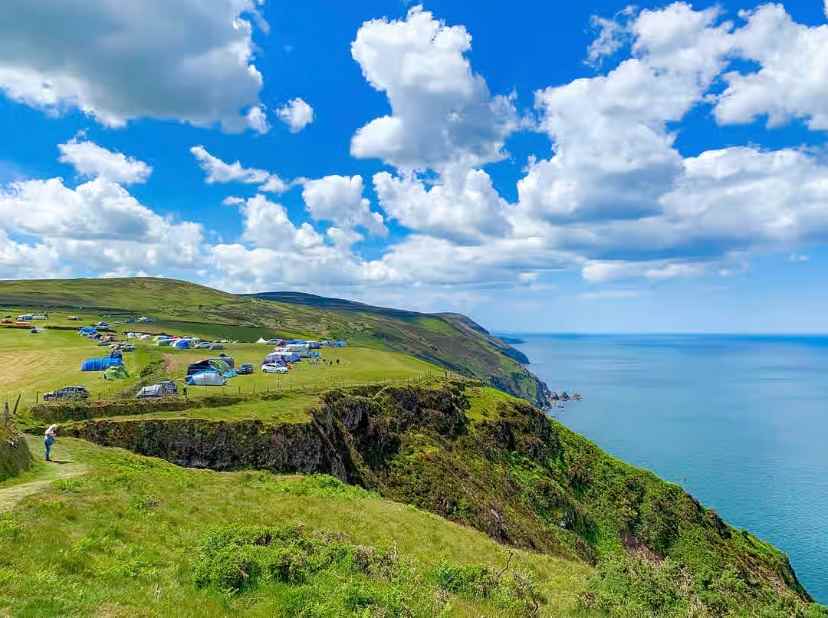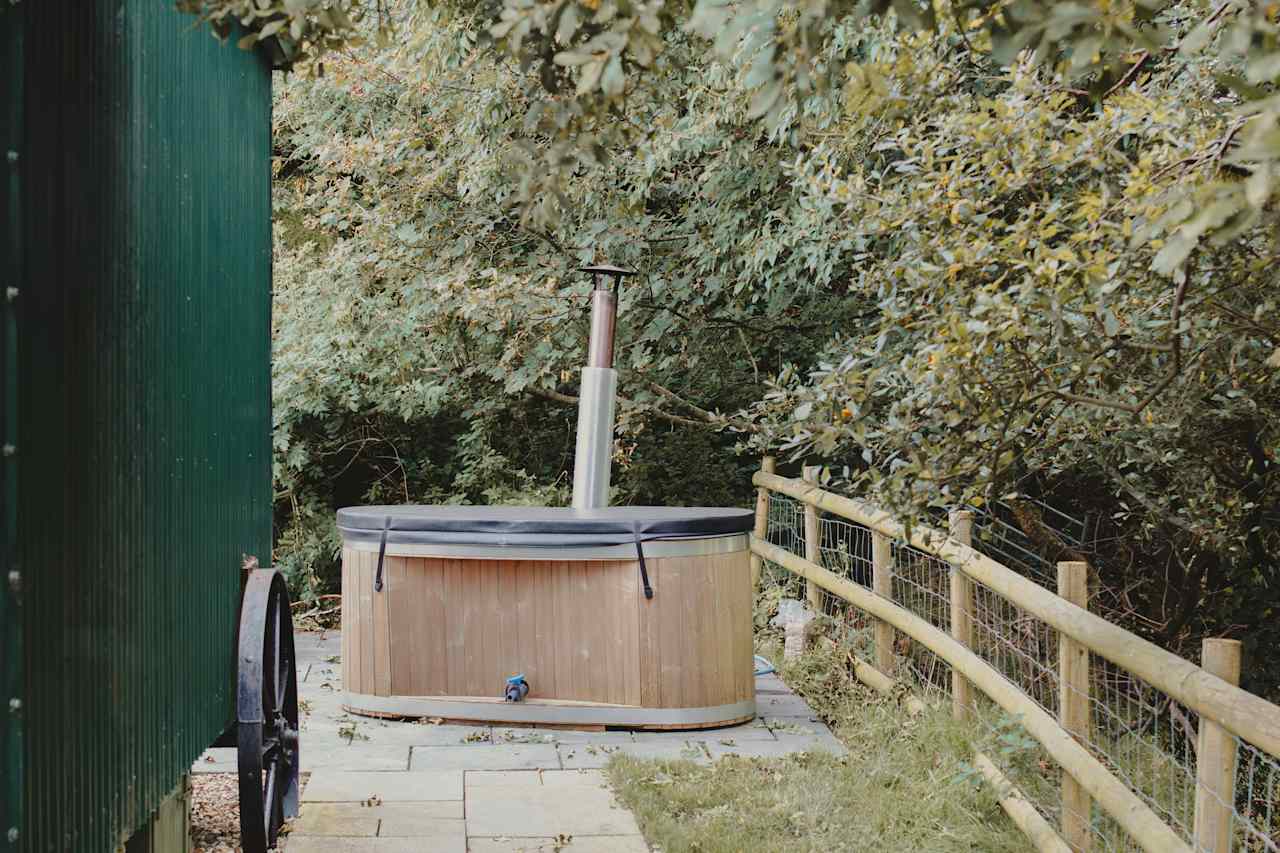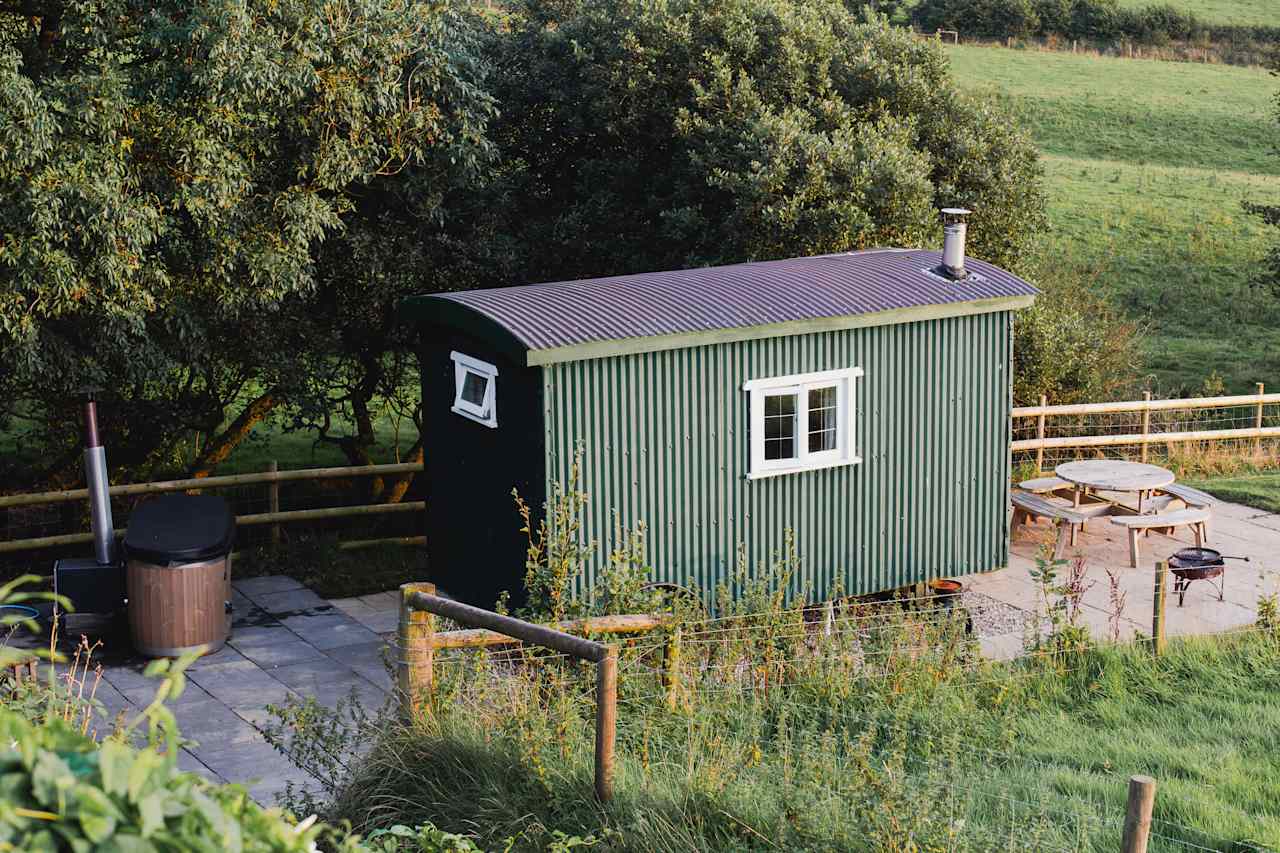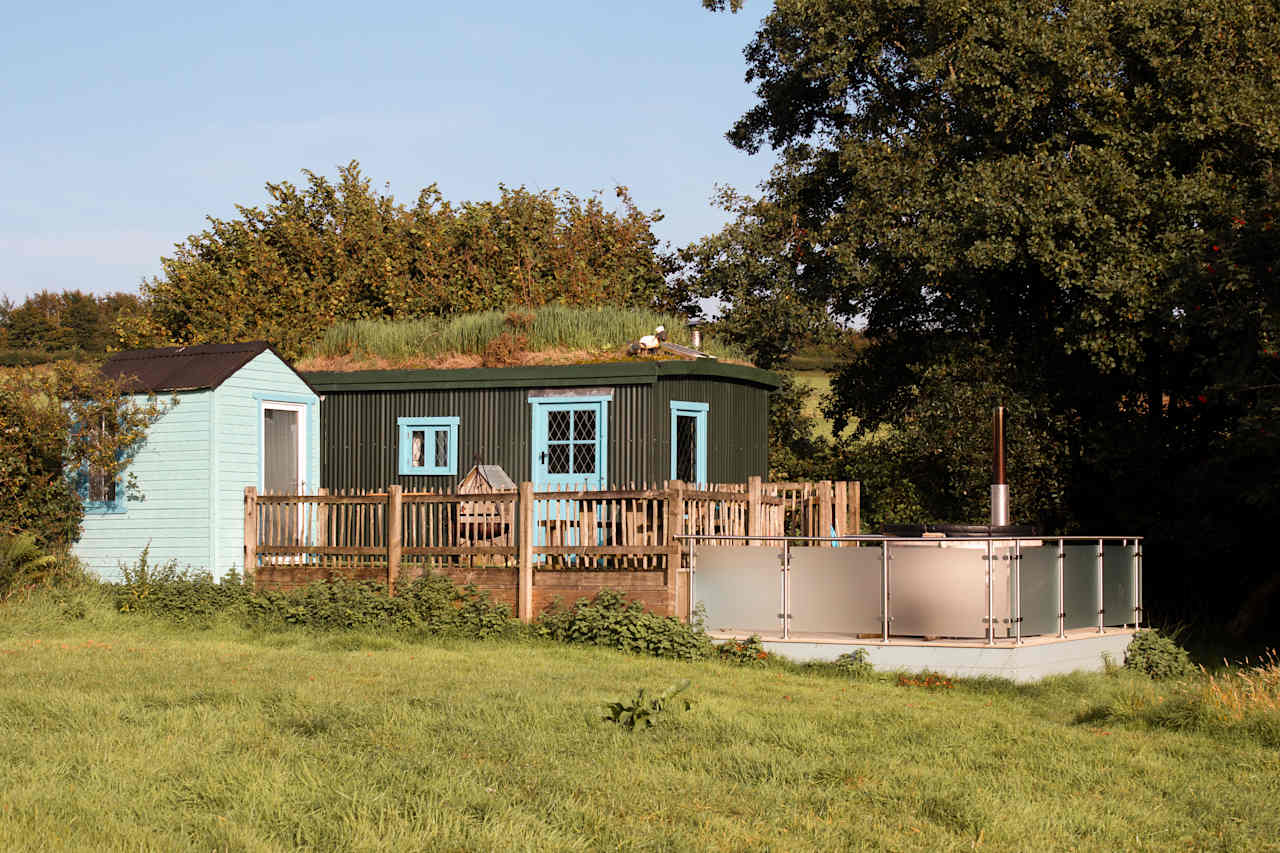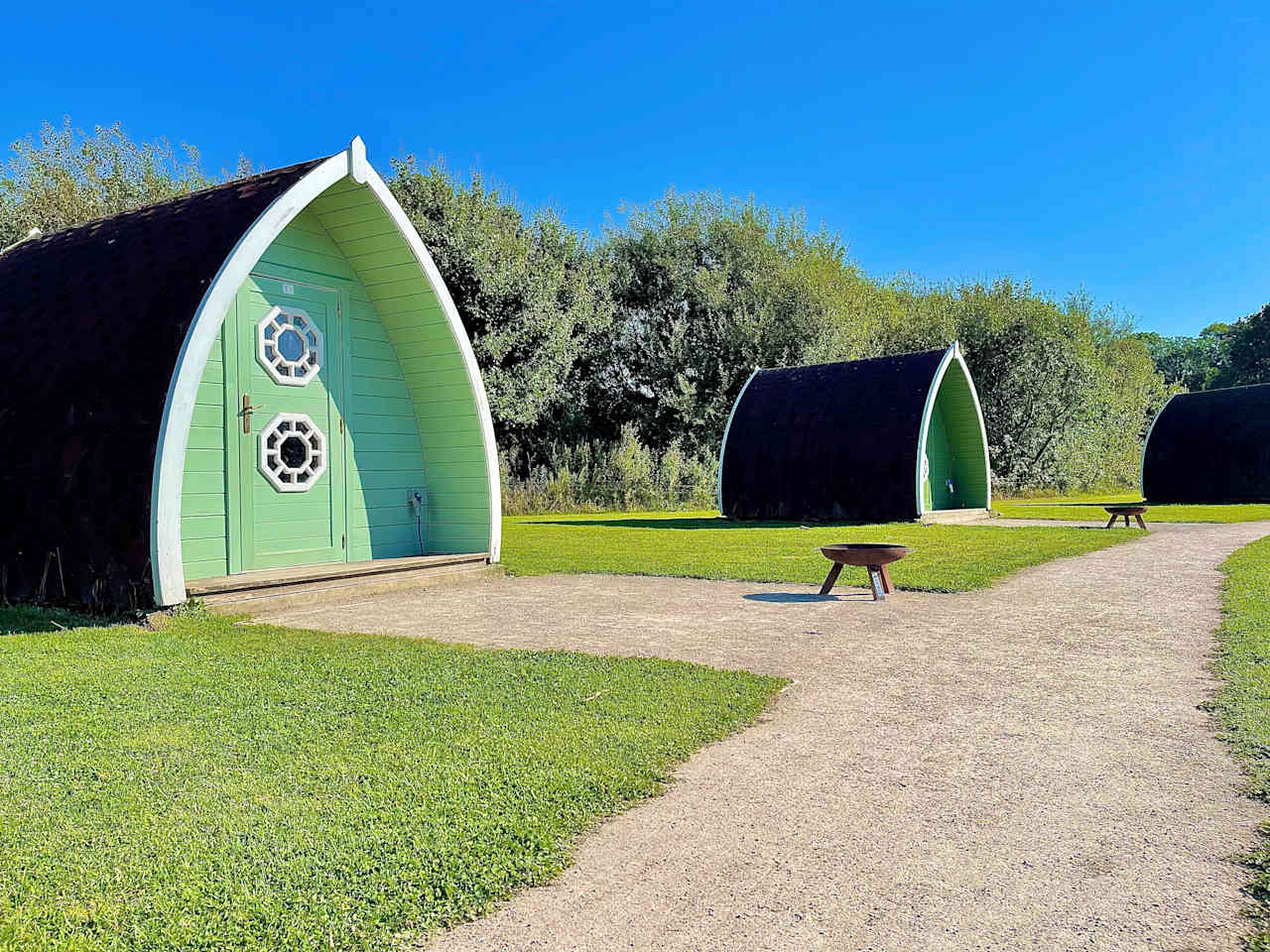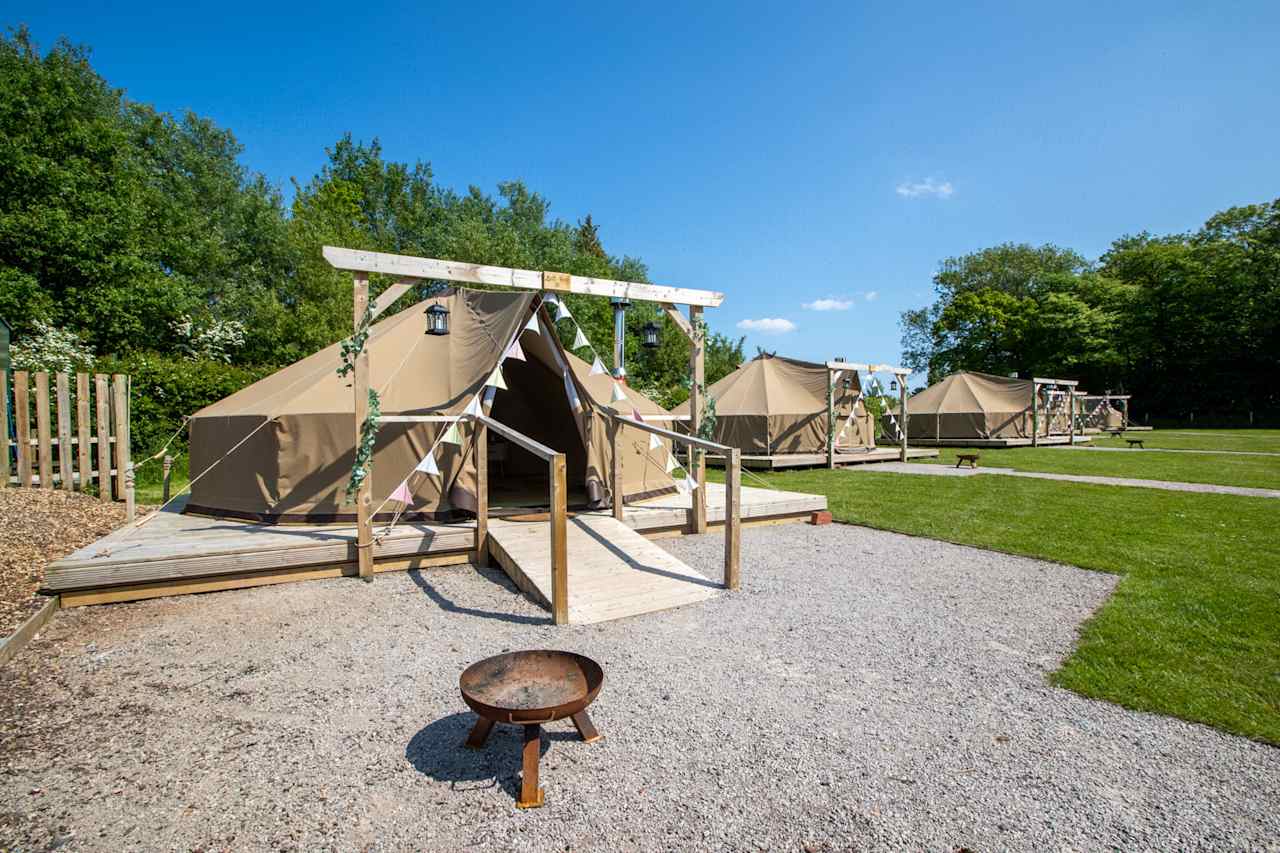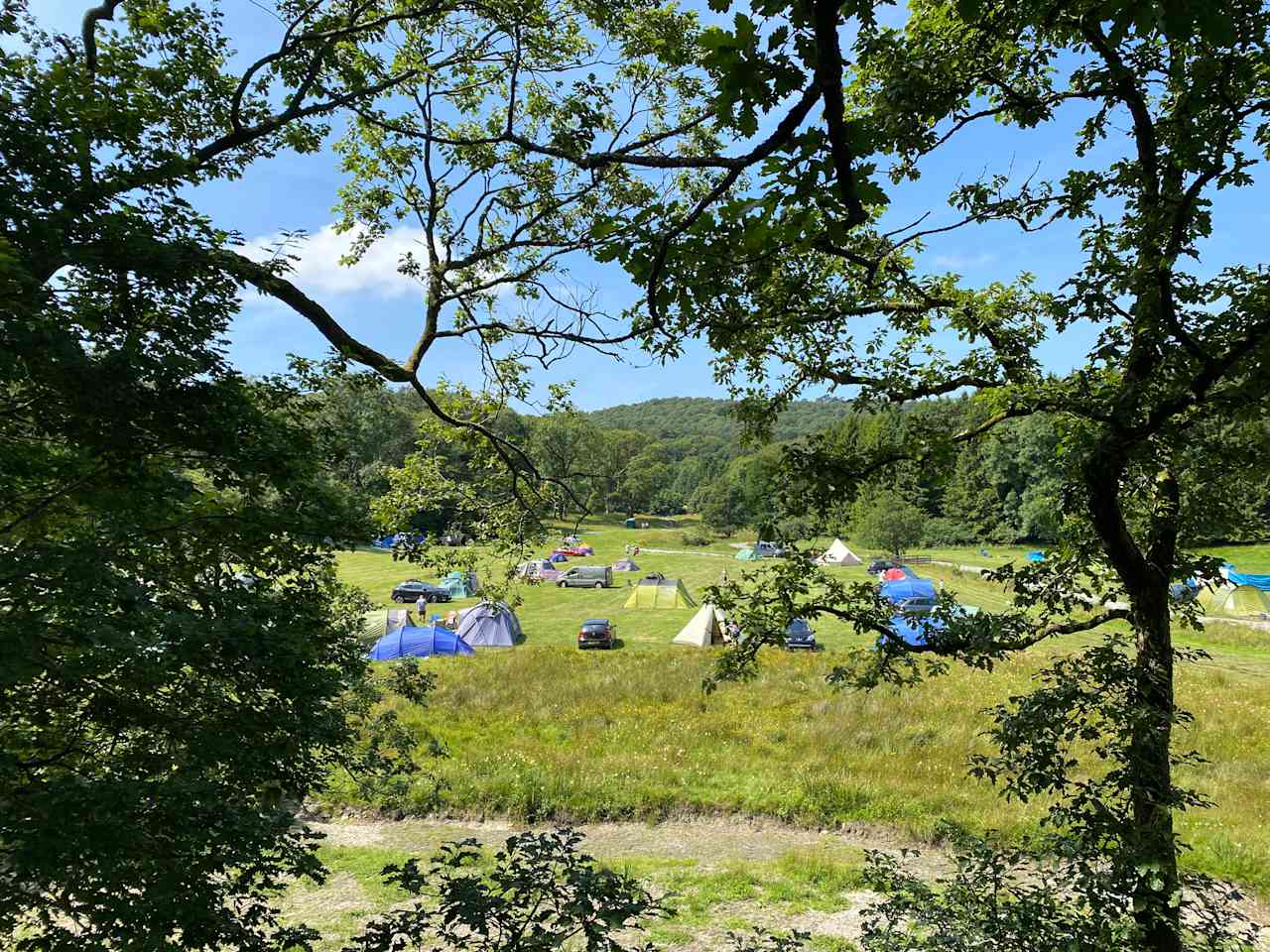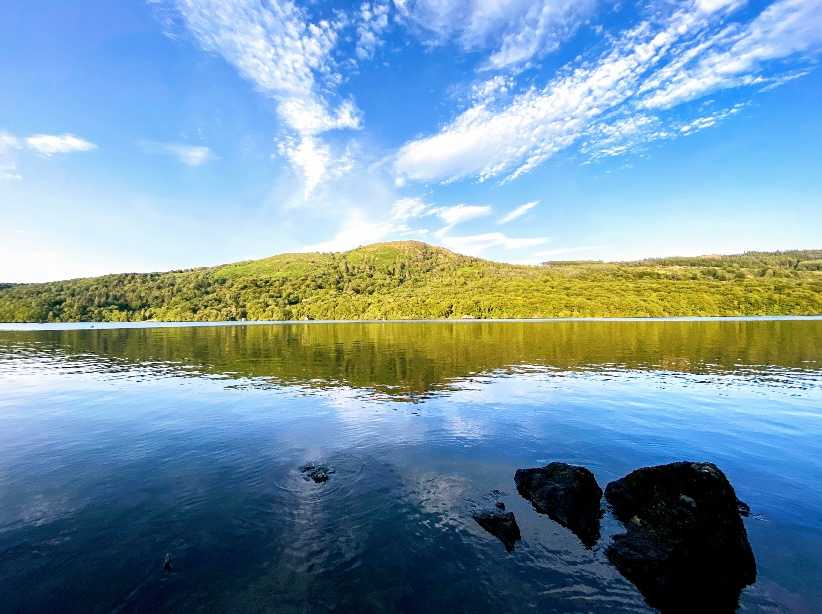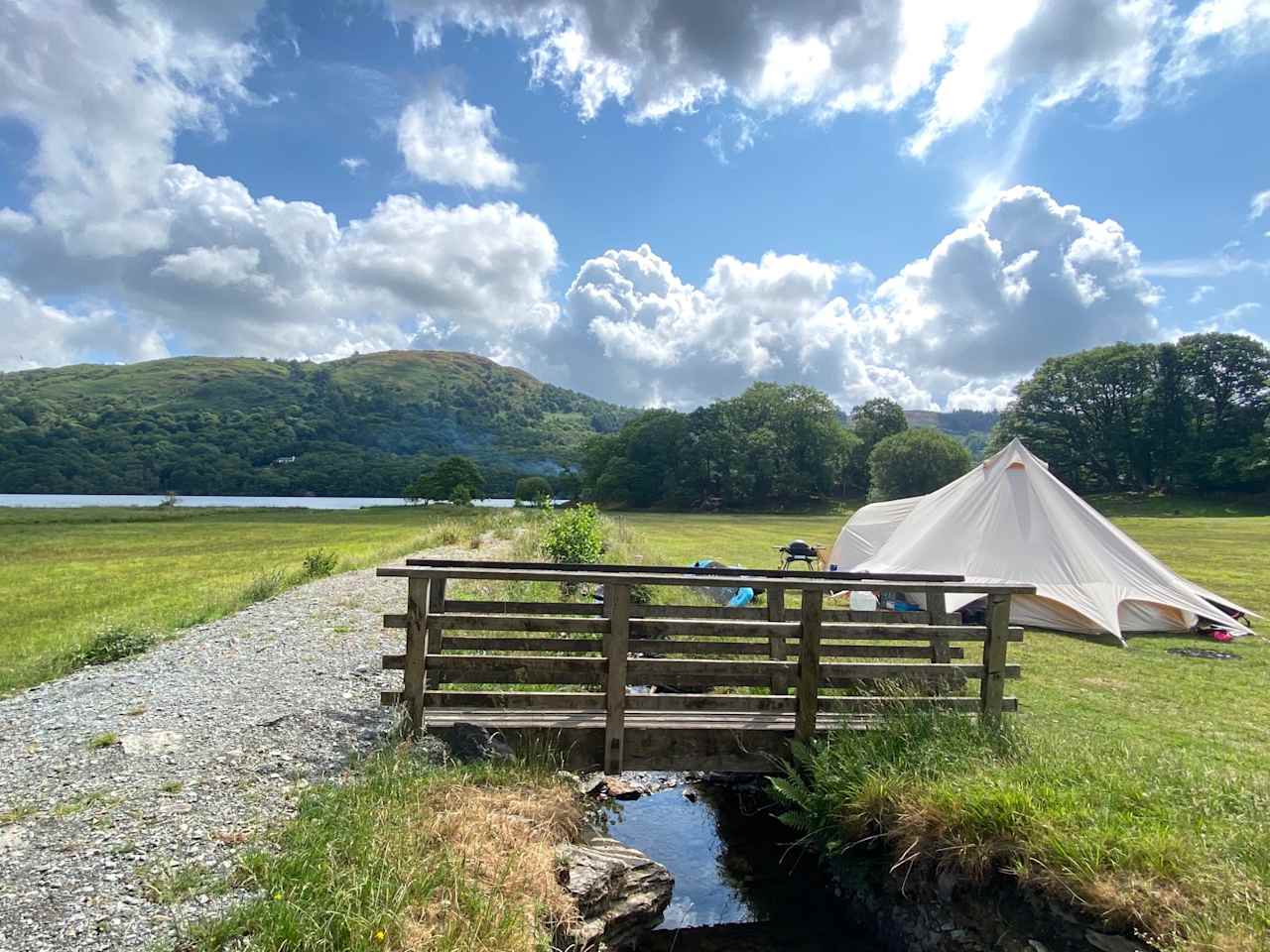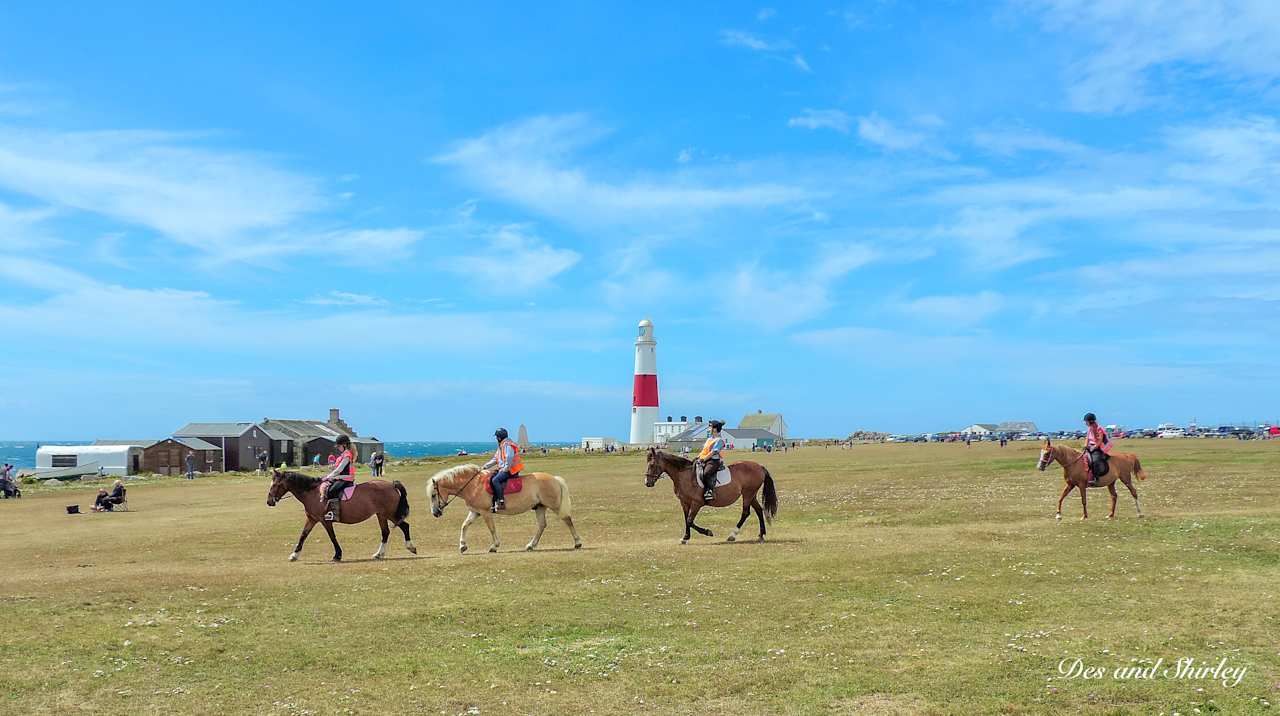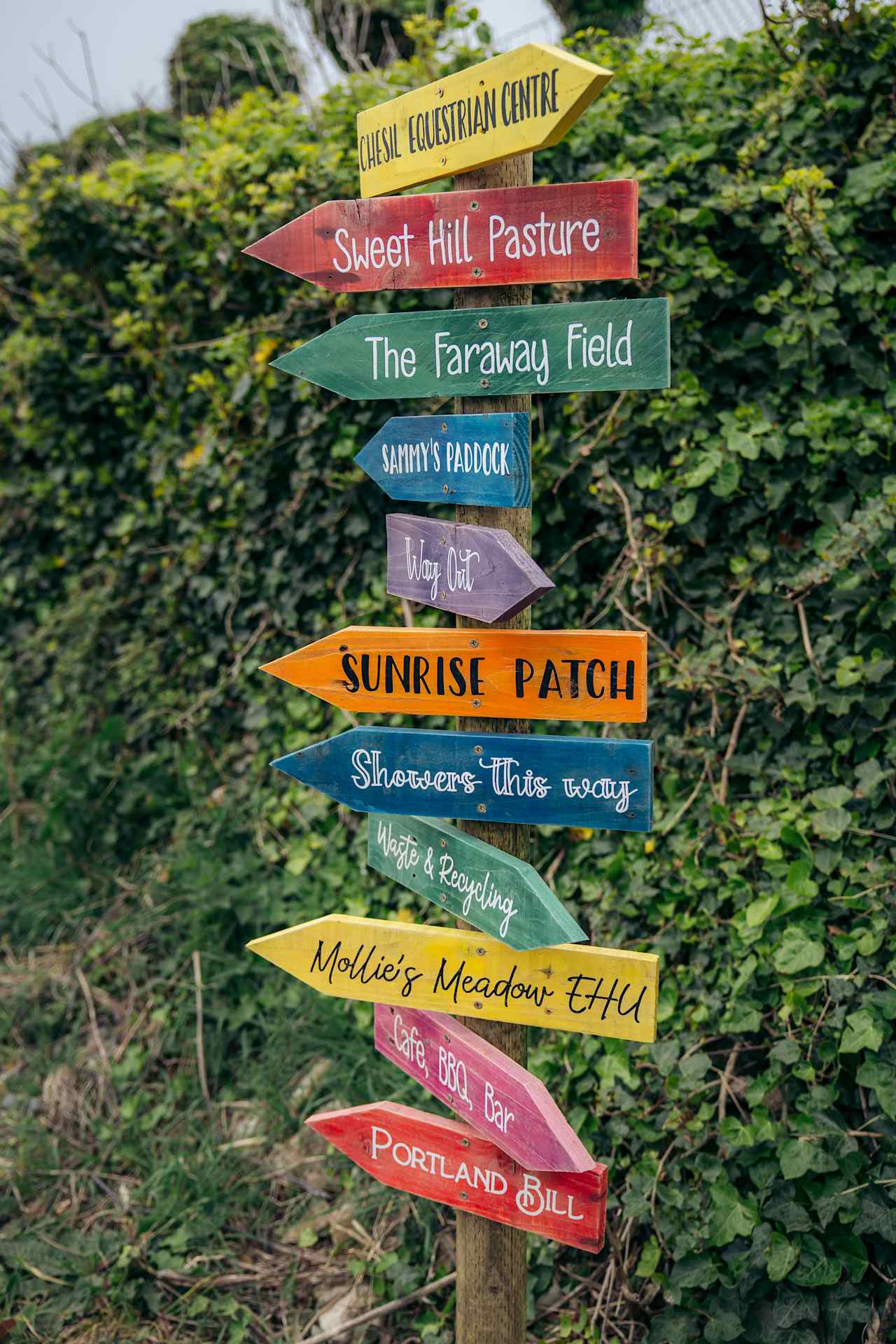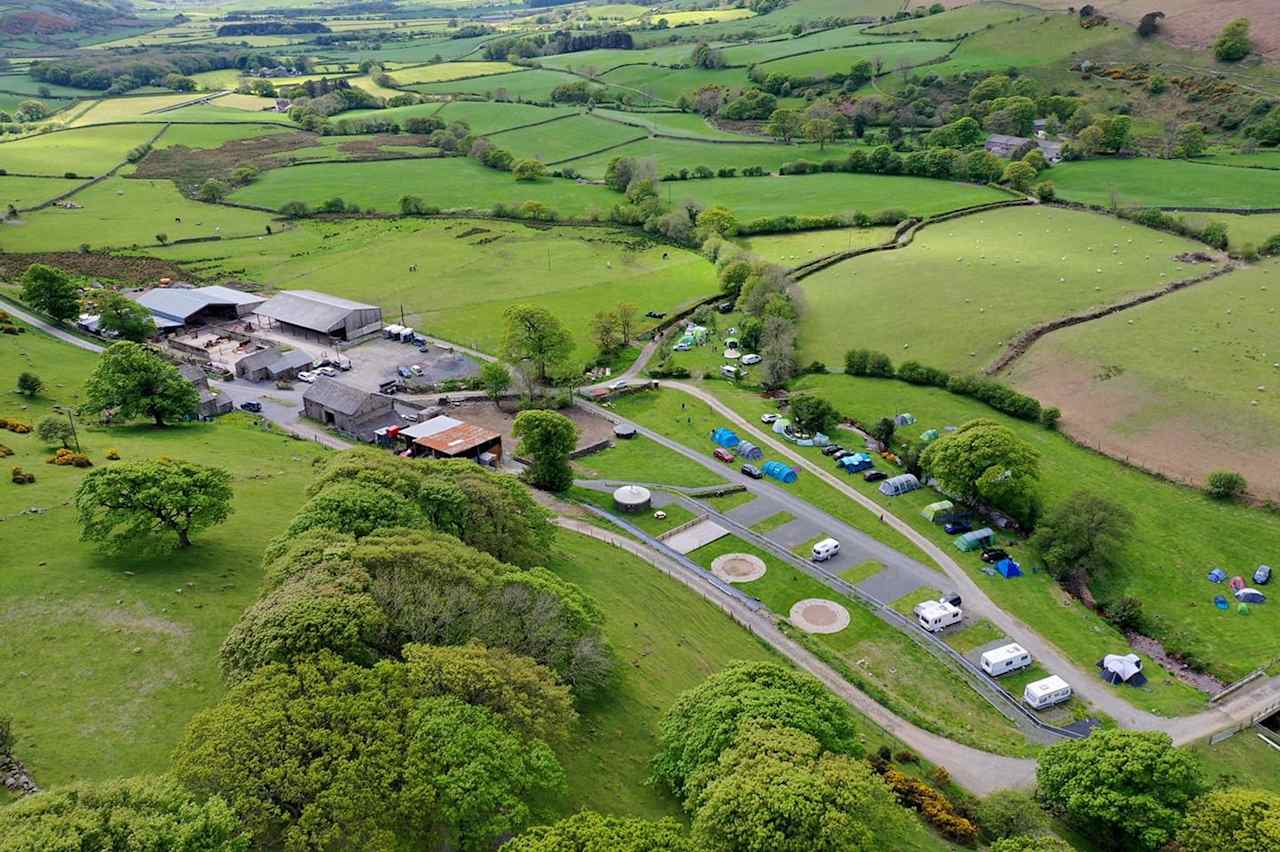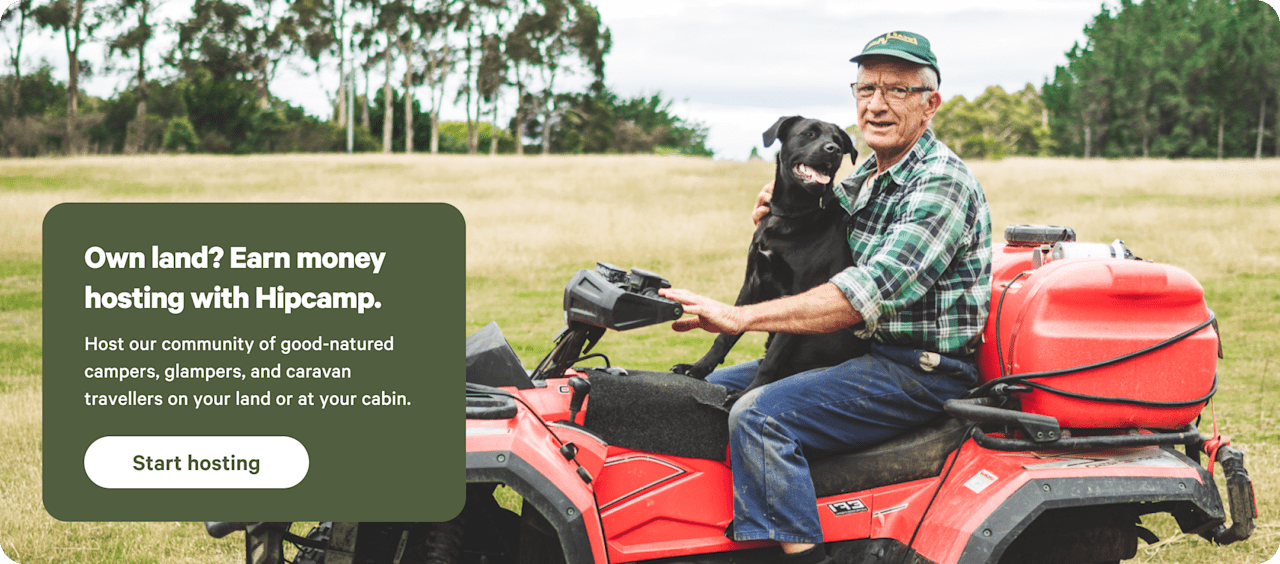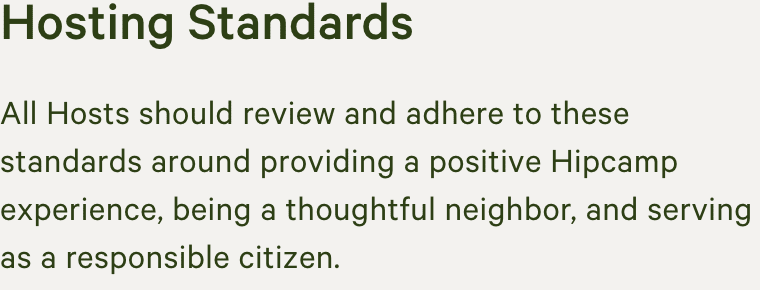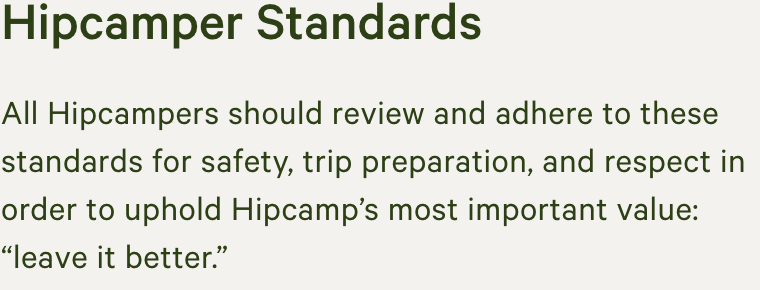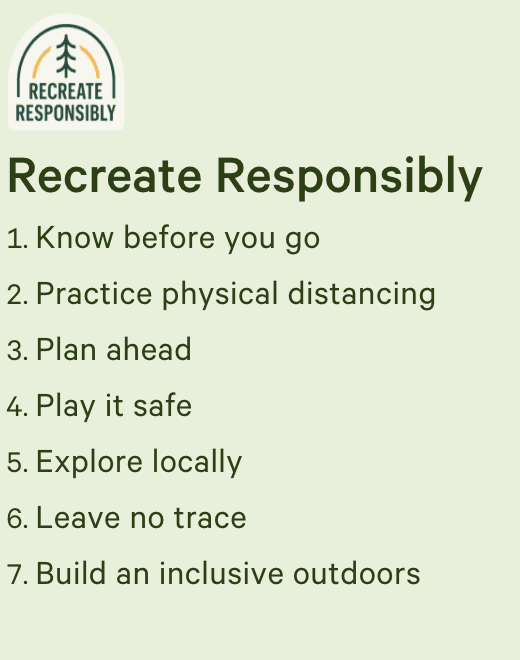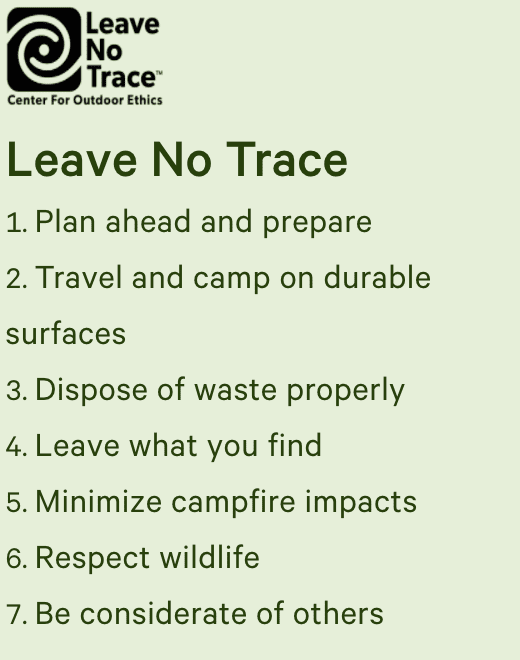Beach campsites in England with showers
Whether in the countryside or on the coast, we have the best campsites and holiday parks in England.
- England
Popular camping styles for England
Star Hosts in England
Cornish Tipi Holidays & Camping
Stanley Villa Farm Fishing& Camping
Dog-friendly getaways
12 top beach campsites in England with showers
Social District
Sweet Hill Farm
Chalky Downs
South Dean Camping
Lepe Beach Campsite
Baystone Bank Farm Campsite
Stanley Villa Farm Fishing& Camping
Cornish Tipi Holidays & Camping
Westland Farm
Walkmill Campsite
Available this weekend
Stanley Villa Farm Fishing& Camping
Cornish Tipi Holidays & Camping
Under £50
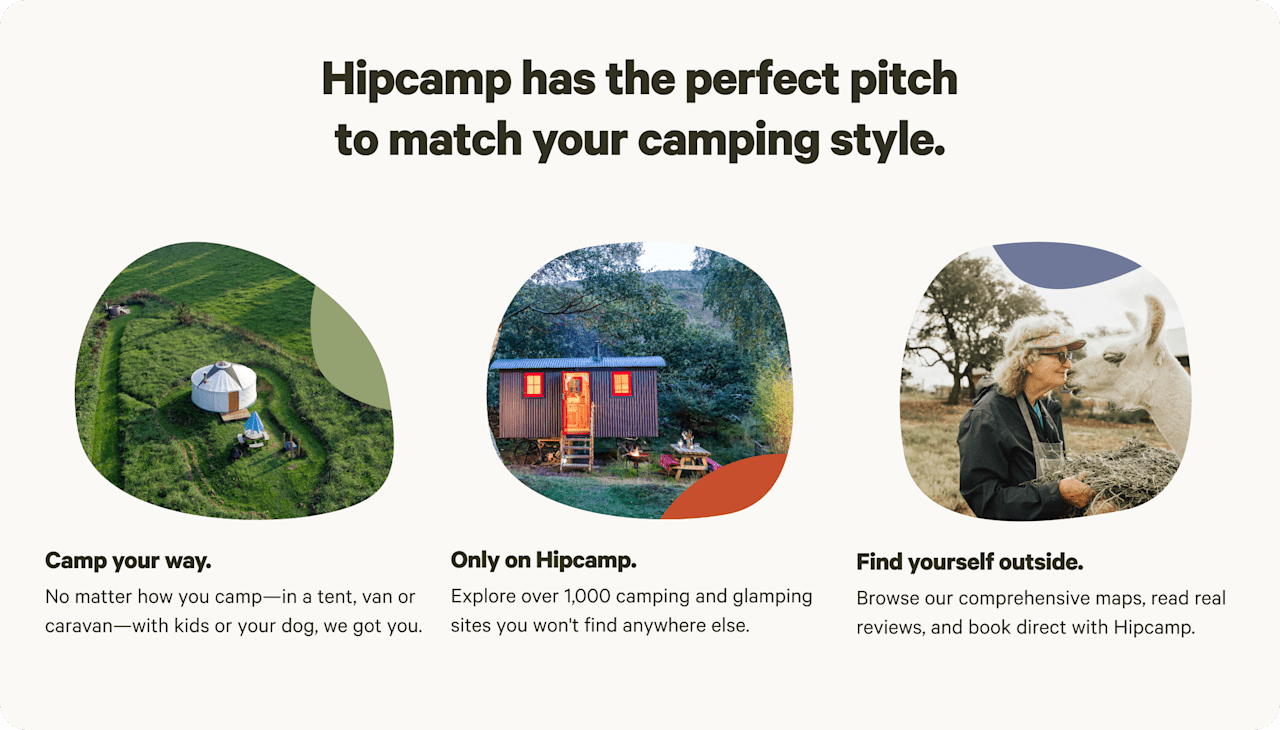

Beach campsites in England with showers guide
Overview
When it comes to camping and the great outdoors, you'd be hard pressed to find a place of more unforgettable natural beauty than England. From the tip of Cornwall to Hadrian's Wall, there are thousands of campsites in England across national parks, on farms, and on England's long and varied coastline. We've pitched up at hundreds of camping and glamping sites across the country to find the best of them and bring you a curated collection of places that offer something special. Whether you’re looking for a place to pitch your tent in the Lake District, a family-friendly campsite by the beach, a romantic glamping stay deep in the New Forest, or something in between, we’ll have something you’ll like.
England Travel Information & Inspiration
Whether you're looking for beautiful beaches in the South West or planning to climb the mighty mountains of the North, England is a land awash with interesting things to do and places to go. On rainy days there are endless attractions to keep you busy – museums, activity centres and historic attractions – while, on sunny ones, the seaside, the hills and the countryside offer ample opportunity to enjoy the great outdoors. Along with visiting campsites all around the country, our Hipcamp travel experts have also taken time to pick out some of their favourite places to go in all of our latest blogs and articles. For detailed tourist information you can, of course, visit the official Visit England website where there is bags of helpful advice about where to go all year round. Whatever you choose to do, make sure you take the tent, book a place to stay and enjoy life under canvas along the way.
The best campsites in England
Walking through ancient woodland, wildflower meadows, and sandy beaches, visiting magnificent castles and old country pubs, tucking in to cream teas and ploughman's lunches…it can only be England. With 10 national parks protecting some of its most special landscapes along with varied coastline and countryside, England offers fantastic places to go camping and glamping—and the best campsites are as varied as the places you'll find them in, whether you prefer the sea, mountains, lakes, or forests. Some are special because of their location, others because of their facilities, and some stand out for the opposite reason: places in the middle of nowhere with nothing to do but relax.
With this, camping holidays in England have come a long way since the days of taking a little caravan to the seaside. Over 15 million camping trips were taken in the UK in 2015 alone, according to the Great Britain Tourism Survey. On average, people planned three camping trips per year, with 60 percent of campers choosing August, and 49% choosing July. Unsurprisingly, December, January, and February were the least favourite times to go camping, with just (a very hardy!) 2 percent willing to brave the January frost. Whatever time of year you choose to go camping—and whether it's at an official campground or the wilderness—England has literally thousands of options.
That's why we've scoured the country to find the best campsites in every region from the Lake District to the New Forest and from the Norfolk Broads to the Cornish Coast. We cater to all tastes by featuring family-friendly campsites as well as adults-only ones; shady woodland campsites and sunny meadow spots; back-to-basics camping and all-out luxury glamping.
Read on to learn which area sounds like your cup of tea.
Tent camping in England
In our opinion, there’s nothing like a few days of classic tent camping to help you relax and reconnect with the natural world. With your tent as your canvas bedroom, the great outdoors serves as your living room, play room and kitchen. Whether you’ve opted for a woodland, meadow or beachside site, you’ll have plenty of time to appreciate the scenery and soak up the atmosphere. You can be lulled to sleep by the sound of the surf at a seaside site and gently woken by birdsong in a country location.
A typical old-school classic camping site in England is a farmer’s field with a water tap and basic facilities where you pitch your tent and cough-up the camping fee when the farmer comes around in the morning. Often these casual campsites are in truly stunning spots and open for only a limited time in the summer to meet demand. We have a soft spot for these sorts of places and many back-to-basics sites like this feature in our collection – though, of course, these days all are bookable online. If the thought of the basic facilities that go along with a simple site are enough to put you off, don’t worry, there are plenty of classic campsites in the Hipcamp collection that offer a few more mod cons: places with level pitches, fancy facilities and electric hook-up to make sure your camping trip goes without a hitch. And then, of course, there’s glamping…
Glamping in England
Glamping in England is an increasingly popular way to holiday and continues to go from strength-to-strength. It’s the perfect solution for people who want the fun of camping but without the hassle of pitching a tent. With Britain’s unpredictable weather, glamping can be a godsend if you’re a self-confessed fair-weather camper. Book yourself in to a pre-erected bell tent, yurt, safari tent or tipi and, should the heavens open, you won’t be left struggling to find tent poles in the rain. It’s even more of a blessing at the end of the holiday when packing up a soggy tent can, quite literally, be a bit of a dampener.
Glamping also extends the camping season in England where spring, autumn and winter can be chilly. You don’t need to be a hardy camper to enjoy a spot of winter glamping if you book in to a cosy yurt, gypsy caravan or shepherd’s hut with a wood-burning stove. In fact, some might say that glamping is at its best in the winter months. The range of glamping accommodation in England is vast from modern geodesic domes to treehouses that look like they’ve come from the pages of a fairytale. There are horse boxes, buses, helicopters and more that have been converted in to places for glampers to getaway: the more eccentric, the better – this is England after all!
Where to go
The Lake District
The Lake District is one of the England’s most-visited regions and, among its many highlights, you’ll find the country’s highest mountain and its largest lake—it’s no surprise Wordsworth waxed lyrical about it. It sure does get busy at weekends and during school holidays but, as it’s also England’s largest national park and a World Heritage site, you can usually take yourself off and find a quiet place to reflect upon its natural beauty. Camping among Lake District peaks or on the shores of one if its lakes is a sure-fire way to make the most of the scenery.
While many of the tourists are tucked up in town, campers and glampers have the chance of seeing the peaks at sunset, sunrise, and silhouetted by the stars. But sitting back isn’t all the lakes are about—this is England’s outdoor capital. Hiking, climbing, mountain biking, kayaking, and more adventurous activities are on offer all day, every day in this region. Put in the effort to get to the top of one of the region’s mountains and you’ll be rewarded with unrivalled views.
While the wilds are the main draw, that’s not to say that the Lake District’s town and villages aren’t worth a visit on days out from your campsite: Grasmere, Ambleside, Kendal, and the rest all have their own appeal with tearooms, pubs, and restaurants to fuel up in. You can visit the former Grasmere home of poet William Wordsworth, take a cruise on the lake from Windermere, and visit the World of Beatrice Potter in Bowness-on-Windermere.
Yorkshire and North East of England
Yorkshire and the North East of England offer fantastic camping country encompassing huge rural areas, three national parks, and some fascinating places to visit on days out. England’s far North East is where you’ll find one of its best-known and most-recognisable landmarks, Hadrian’s Wall. With the remains of Roman forts and a walking trail running the length of the route, it’s a fascinating place to visit. Northumberland National Park offers a number of historic sites for those who want to get away from it all, as it's the northernmost national park in the England. Famed for its clear nighttime skies (designated as an International Dark Sky Park), the park boasts some of the cleanest, clearest fresh air and water in the country. Northumberland is also known for its long sandy beaches and the wildlife that thrives both on and off shore, and hikers especially love the heather-covered hills and running trails.
Further south, Yorkshire boasts not one but two national parks of its own: the Yorkshire Dales and the Yorkshire Moors. Home to the largest area of heather moorland in the UK, the Moors features trails and a beautiful coastline, while the Yorkshire Dales National Park is rural, rolling, and green at heart of the country. Expect drystone walls and old barns, wildflower meadows, quaint villages and babbling brooks. If you’re thinking of the age-old TV favourite Last of the Summer Wine, you’re on the right track, though apparently that was filmed in the part of Yorkshire that stretches in to yet another national park, the Peak District.
is perfect for those who like their landscape on the more rugged, wild side: Located in northern England, this stunning park is famous for its stone walls, ancient ruins, and some of the best walking paths in the UK.
The Peak District
The Peak District was England’s first national park and the place where the “right to roam” was established. It remains the perfect place to do just that. Its 500-square miles of heather moors, rolling dales and rocky outcrops in the middle of the country beg to be explored on foot. It’s also a magnet for climbers with gritstone peaks and outcrops, like the four-mile stretch at Stanage Edge, offering routes for all abilities. There are plenty of outdoor adventure companies offering days out with expert guidance and equipment hire. Stanage Edge falls in the northern part of the national park, an area known as Dark Peak for its peat bogs and dark gritstone. South of the beautiful Hope Valley the landscape changes: farmland, dry stone walls, rolling hills, rivers and woodland make up the White Peak. Despite being Europe’s busiest national park, there is plenty of space for those who want to experience the wild landscape in solitude.
If you’ve got any energy left after walking, climbing, cycling and generally making the most of the endless trails across the Peak District there are plenty of other things to do on days out from your Peak District camping or glamping site. There are a number of fascinating caverns and caves open to the public and there are dozens of pretty villages and market towns within the national park – including Bakewell (home of the Bakewell pudding). If you like visiting historic houses and gardens, you won’t want to miss one of England’s grandest stately homes, Chatsworth House.
East Anglia: Suffolk and Norfolk
The long sandy beaches of Norfolk make it a firm favourite for family camping. There are lots of great campsites on and near it’s coast and it’s easy to see why. There is something truly special about Norfolk. Its dune-backed beaches are great in sunny weather when you can roll up the trousers and go paddling in shallow waters, but they’re equally awesome when it’s wild too: windswept and atmospheric. With seal and bird colonies off its coast, it’s great for wildlife watching too. Nature lovers will also love Norfolk’s hinterland of marshes and fenland where quiet waterways drain the farmland that East Anglia is famous for. Of course, Norfolk’s most famous waterways are The Broads, which cross the county border into Suffolk and are protected as the Broads National Park. The 125 miles of lock-free, navigable waterways offer waterside walking, kayaking, wildlife-watching, and canoeing.
The Suffolk coast is no less special than Norfolk with big sandy beaches and wildlife hotspots like Minsmere RSPB as well as quirky seaside resorts like Aldeburgh and Southwold where you can take a stroll down the pier. Both Suffolk and Norfolk have their fair share of grand houses and quaint market towns but it’s in Suffolk where you’ll find perhaps the most picturesque medieval villages: the Suffolk wool towns with their half-timbered houses and lavish churches. Suffolk’s Dedham Vale and Stour Valley Area of Outstanding Natural Beauty is another great place to camp or to visit. Known as Constable Country as it was here that one of England’s best-loved painters found inspiration for some of his paintings, including his best known work, The Haywain.
The South-East and the New Forest
From the centre of the south coast to its eastern edge, Kent, Sussex and Hampshire share a landscape of chalk downs, farmland, ancient woodlands and coast. While the gently rolling hills and heath may lack the drama of wilder and more remote areas of England, there’s something oh-so English about this green and pleasant land. Kent touts itself as the Garden of England and with good reason. Outside of its urban areas and away from its coast, it’s all farmland and orchards with a few mighty castles and historic chocolate-box villages thrown in for good measure. Neighbouring Sussex offers more of the same. The county has dozens of great camping and glamping sites; from woodland sites where campfires are allowed to places that are just a stone’s throw from the beach or a few steps off the South Downs Way long distance walking path. The South Downs National Park stretches across 260 square miles of pristine southern English countryside, cutting a swathe from the chalk cliffs at Beachy Head into neighbouring Hampshire, separating the beach resorts of Brighton, Hastings and Eastbourne from the country villages and estates further inland. At the other end of the South Downs is historic Winchester in Hampshire.
But the South Downs is just one of Hampshire’s national parks, the other is the 219-square-mile New Forest, with its gorgeous coastline and miles of heathland. Declared a royal hunting ground by William the Conqueror way back in 1079, the New Forest is an area of open access land where even ponies roam free. Nowadays it’s a popular place to walk, cycle, horse ride, and spot deer.
Cornwall and the West Country
England’s south-west has always been a favourite for campers and it’s easy to see why. Cornwall, Devon, Dorset, and Somerset all have amazing coast and countryside which means a pitch with a view isn’t hard to find. The Cornish coast alone is 300 miles long and includes dramatic cliffs, beautiful beaches and laid-back beach retreats. Along with neighbouring Devon, it’s a magnet for surfers and families looking for a holiday by the seaside with long sandy beaches in between its quaint fishing villages. It’s a similar story in Dorset where the UNESCO World Heritage-listed Jurassic Coast is the jewel in the county’s crown. The South West Coast Path tracks a 630-mile route around the whole of the south-west from Minehead in Somerset on the north coast to Poole Harbour in Dorset.
Inland, West Country camping is no less special. The southwest corner is largely rural with plenty of farm camping and glamping sites among orchards, meadows, and farmers’ fields: many with an emphasis on being eco-friendly. Then there are the West Country’s two national parks: Exmoor and Dartmoor, with miles of wild heather moorland, stone circles, and free-roaming ponies. Campers love Dartmoor National Park for its dramatic moorlands, valleys, and rivers, plus its surrounding southern Devon medieval villages. Exmoor National Park, meanwhile, is renowned for its coastline—think towering cliffs, lovely beaches, and rolling moorland
Camping near London
Camping provides the perfect antidote to the stresses and strains of city life. Swap city streets for woodland pathways and traffic noise for birdsong; leave the laptop and the mobile phone in favour of the simple life and you’re sure to feel refreshed. There are some great campsites near London that make even just a weekend away a real possibility for city dwellers. And if your idea of relaxation does not include lugging a tent and pitching it yourself, there are now plenty of glamping sites within easy reach of the capital too so you can still enjoy reconnecting with nature – but without any of the hassle.
Within two hours of leaving the city you can be relaxing at a camping or glamping site. The obvious choices for camping near London are the home counties of Hertfordshire, Essex, Kent, Surrey, Berkshire and Buckinghamshire. There are lots of camping and glamping sites in these regions and it’s only a short skip from the M25 to reach East and West Sussex where there’s a great selection of camping and glamping sites. The closest sites to London offer countryside or forest camping or glamping but head south in to Kent or Sussex and you can be by or within reach of the sea too. Choose a campsite with good public transport connections and you can make your Friday-night commute straight to camp. And, of course, it works the other way around too: if you are looking to camp somewhere that’s not too far from the city so you can spend a day seeing the sights, camping and glamping sites close to a railway station are the best idea.
About
Discover the best campsites in England, from the coast of Cornwall to the mountains of the Lake District. Adult-only campsites, tent-only pitches, dog-friendly sites, family-friendly spot, we’ve got something for you. Book your camping holiday in England for the best price.




